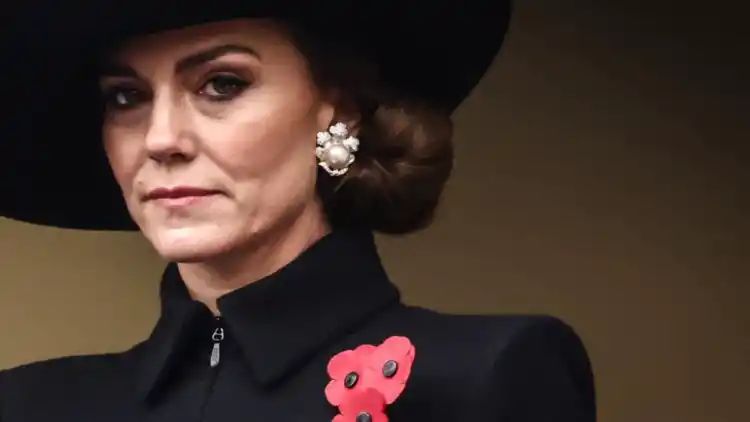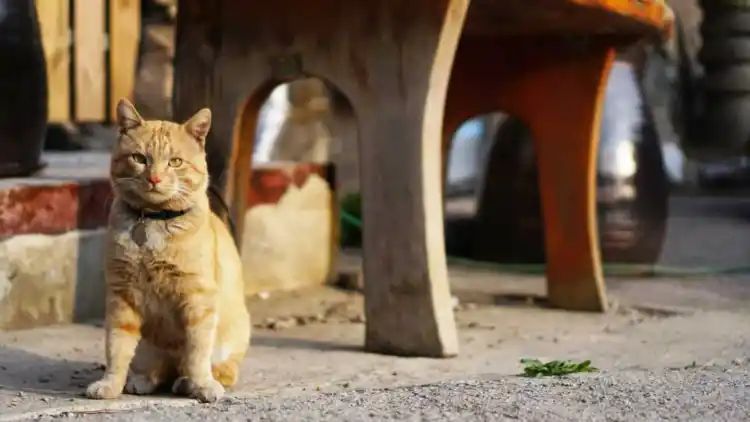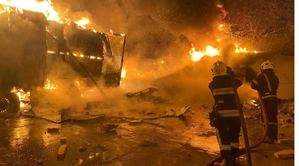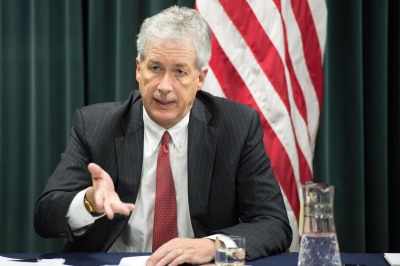Kate conspiracy theories: Are Russia and China spreading wild rumours?

Is the Kate cancer video AI-generated? What cancer does she have? For weeks, the intense speculation over the absence of the Princess of Wales from the public eye probably forced her to take to social media and announce to the world that she has cancer.
You’d think with the sombre news, the conspiracy theories would stop. But they continue.
But who is spreading the rumours? It is not the curious everyday social media user. There could be a larger hand at play. The United Kingdom government is concerned that the country’s adversaries are fuelling disinformation about the future queen. There is a possibility that hostile states like Russia, China and Iran are involved.
Are Russia, China, Iran involved?
Days before Kate revealed her cancer diagnosis in a video message, there was a surge in rumours about her and ill-founded speculation about her health. It put a lot of pressure on the royal couple and Kensington Palace. The barrage of misinformation caught the attention of the British government and now senior officials fear that rival nations could be involved. According to a report in The Telegraph, Russia, China, and Iran are spreading conspiracy theories and online rumours surrounding the Princess of Wales’s health.
After Kate announced her cancer diagnosis, UK prime minister Rishi Sunak hit out at social media trolls for targeting the royal online. He urged that the princess should be given privacy to focus on her treatment.
“The Princess of Wales has the love and support of the whole country as she continues her recovery,” Sunak said after Kate’s declaration. “She has shown tremendous bravery with her statement today [on Friday]. In recent weeks, she has been subjected to intense scrutiny and has been unfairly treated by certain sections of the media around the world and on social media.”
But even as Kate received sympathy and despite Sunak’s intervention, the commentary about her health continued. Some criticised her for not revealing her diagnosis earlier.
There has been growing concern in Whitehall that hostile state actors could be behind the social media frenzy targeting Kate. A government source told The Telegraph, “Part of the modus operandi of hostile states is to destabilise things – whether that is undermining the legitimacy of our elections or other institutions.”
This grab taken from a video released by the BBC Studios shows Britain’s Kate, the Princess of Wales recording her message announcing that following her abdominal surgery in January, tests found cancer had been present. Kate, said on Friday that she is undergoing chemotherapy. BBC Studios via AP
A Russian disinformation group at work
Disinformation groups based in Russia added fuel to the fire, amplifying the Kate conspiracy theories, according to a BBC report.
The rise in online rumours is a hallmark sign of a coordinated campaign, sharing and adding to the false claims and divisive content, security experts analysing social media were quoted as saying by the publication. They say that this matches earlier patterns of a Russian disinformation group.
The social media data surrounding Kate was examined by a team of researchers at Cardiff University, Wales. The researchers found that many new accounts spreading the Kate conspiracy theories were created this month and used identical language. Some TikTok accounts created recently were dedicated to spreading rumours about the royal family and royal hashtags were shared billions of times across various social networks. All of this suggests the role of an organised network, the BBC reports.
The accounts involved were also spreading content on France’s backing for Ukraine.
A montage of the front pages of some of Britain’s Sunday newspapers pictured in London. Support has poured in from around the world for Kate after she revealed in a video message that she is undergoing chemotherapy for cancer. AP
Martin Innes, director of the Security, Crime and Intelligence Innovation Institute at Cardiff University, told the BBC that the Russian disinformation group is not a state entity but is linked to those sanctioned recently in the US over claims they were part of a “malign influence campaign” that spread fake news.
“Their messaging around Kate appears wrapped up in their ongoing campaigns to attack France’s reputation, promote the integrity of the Russian elections, and denigrate Ukraine as part of the wider war effort,” he said.
The operatives behind the rumours “hijack” popular claims, adding to the confusion and noise. This makes it difficult to distinguish them from other social media users simply sharing the rumours to grab more eyeballs.
Dr Jon Roozenbeek, an expert in disinformation at King’s College London, was quoted by the BBC as saying that Russian involvement in conspiracy theories is “topic agnostic”. It does not care about the subject, it can be anything that “pushes buttons” and adds to social tensions.
While Kate is the target now, it was Meghan earlier. In the past, suspicious “bot-like” X accounts linked to Russian conspiracy theorists “obsessively” posted about the Duchess of Sussex.
Flowers and a letter to the Princess of Wales were left outside Windsor Castle in Windsor, England. Princess of Wales’s revelation she is undergoing cancer treatment has sparked an outpouring of support and well wishes from around the world. Yet some conspiracy theories continue to swirl. AP
China’s grouse with the UK
The possibility of China’s role comes amid rising tensions between the two nations. On Monday, the UK government formally accused Beijing of orchestrating a “malicious” cyber campaign against its MPs and the election commission.
Two people and a company have been sanctioned – their assets will be frozen, prohibiting them from doing business in the UK and they will be banned from entering the country. UK deputy PM Oliver Dowden said they were behind attempts to access details of MPs critical of Beijing and the data of potentially 40 million voters.
Beijing has denied the allegations with the Chinese embassy in the UK calling them “completely unfounded”.
The UK has imposed several sanctions on China, including last month against Chinese companies accused of aiding the Ukraine war. In 2021, it sanctioned the Chinese government for “systematic” human rights violations against Uyghurs and other minority groups.
Some of the rumours said that there was trouble in the marriage of Prince William and Kate. File photo/AP
Damage to the royal family
Even after Kate’s announcement, conspiracy theories continue to spread wildly.
Many on X and TikTok claimed the princess’s message was an AI-enabled deepfake. Some users posted slowed-down versions of the video to support the baseless claim that it was digitally manipulated, asking why nothing in the background – a leaf or blade of grass – moved. Others scrutinised her facial movements and speculated why a dimple, as seen in previous images, wasn’t visible, according to a report by AFP.
“Sorry House of Windsor, Kate Middleton (and) legacy media — I’m still not buying what you’re selling,” said one post on X.
Britain’s Prince Harry, with Meghan Markle, Prince William and Kate arrive at the Commonwealth Service at Westminster Abbey in London, Britain, in March 2018. Like Kate, Meghan was also reportedly a target of fake news by Russia-linked conspirators.
And then there was misinformation about cancer itself, with posts falsely claiming that the disease was not fatal while comparing chemotherapy with “poison”. And how could anti-vaccine campaigners be left behind?
Many of them jumped on the conspiracy bandwagon, baselessly linking Kate’s diagnosis to “turbo cancer”, a myth linked to COVID-19 vaccines that has been repeatedly debunked.
“There is no evidence to support the “turbo cancer’ lie,” said Timothy Caulfield, a misinformation expert from the University of Alberta in Canada. Conspiracy theorists “are cruel grifters marketing fear (and) misinformation,” he added.
The social media attacks have caused “damage” to the royal family.
Imran Ahmed, chief executive of the Center for Countering Digital Hate, told BBC, “What really, I think, annoyed me was seeing that she was then being revictimised by being blamed for not having come out immediately… I think it’s the inhumanity of the way that social media has made us behave, forcing people to talk about things that can be very deeply personal.”
“And also seeing of course the impact of that on our society, how quickly it was picked up by millions of people, and how much it’s done damage to the Royal family themselves,” he added.





